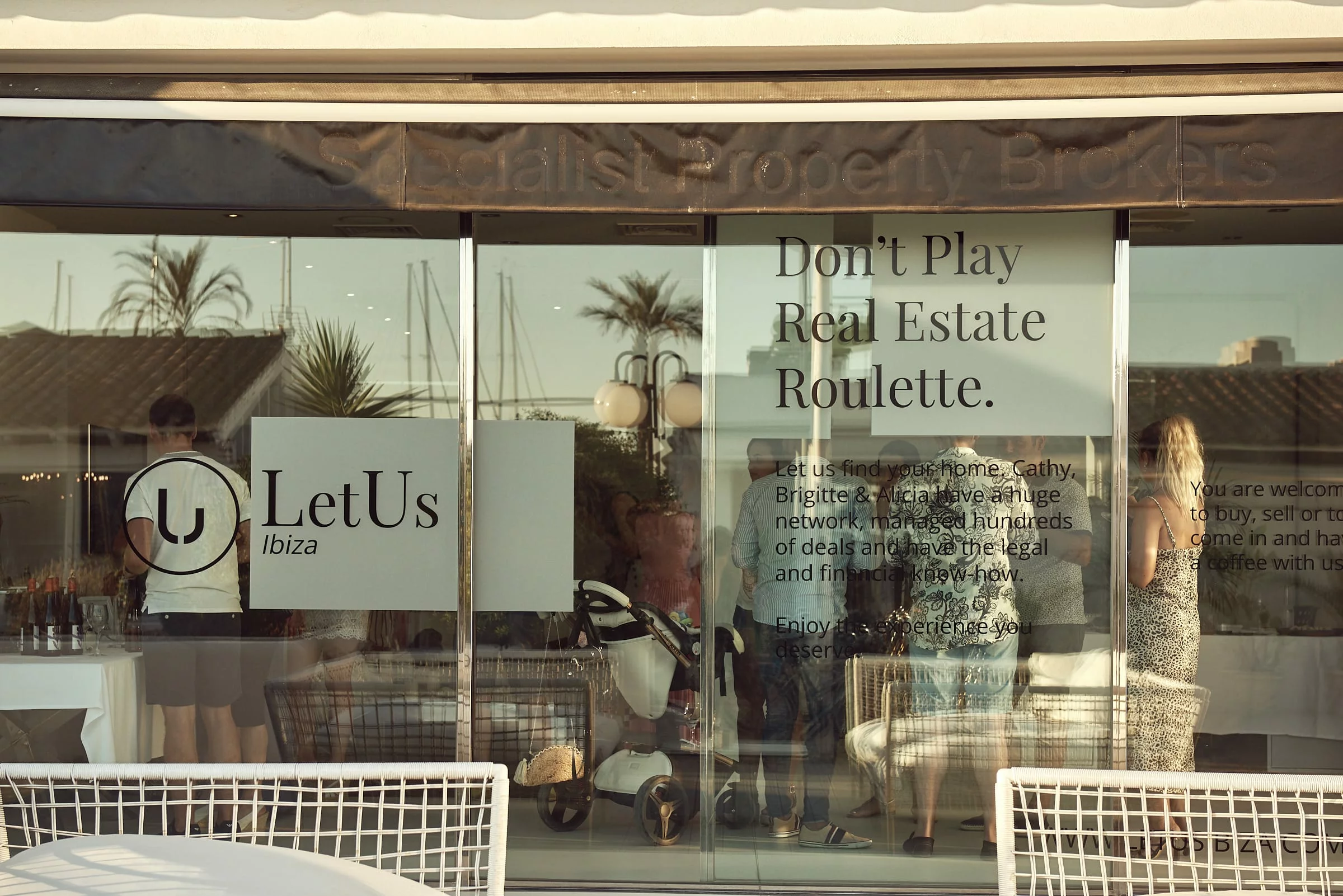
PART1: INTRODUCTION TO CÉDULA DE HABITABILIDAD
1 a. What is the cédula de habitabilidad and what is it for?
The cédula de habitabilidad (habitation certificate) is an official document issued by the Consell Insular (Island Council) and certifies that a building complies with the minimum dimensions, sanitary installations and facilities required for its intended purpose. It also guarantees the building is legal in all respects. It is valid for 10 years from its date of issuance. In Ibiza, the document is issued by the Consell Insular and accredits compliance with the minimum requirements regarding dimensions and technical and sanitary facilities to enable a building in question to serve as a dwelling as provided for in Decree 145/1997 on occupancy (Official Gazette of the Balearic Islands (BOCAIB) 151 dated 06/12/1997) and in the Amending Decree 20/2007 on occupancy (Official Gazette of the Balearic Islands (BOIB) 48 dated 03/31/2007). The cédula also serves as an official means of control, since it is required in order to contract public utilities such as water and electric power. However, it must be kept in mind that once the certificate is obtained, it is not valid forever since it expires after ten years and is not renewed automatically by the issuing authority.

1 b. Types of cédulas de habitabilidad
There are three types of cédula de habitabilidad (habitation certificate):
-
- Cédula de habitabilidad de primera ocupación (first occupancy habitation certificate) This is required for new builds and when extension works or any others that affect 60% of the usable area have been performed. In accordance with the provisions set forth for each case in article 4 of Decree 145/1997 of 21 November, this includes both refurbishing and reconstruction works and whenever there is a change of use.
- Cédula de habitabilidad de renovación (renewal of the habitation certificate) This is required when you have an expired cédula and apply for its renewal, provided that none of the conditions set for the above occupancy cédula de habitabilidad are applicable.
- Cédula de habitabilidad de carencia (lack of certificate) Certificate required for the issue of a cédula de habitabilidad for buildings completed before 1 March 1987 that lack any kind of cédula.
Application of a duplicate of the cédula de habitabilidad. Procedure for an application of a duplicate while the cédula has not expired.
1 c. Application requirements:
The procedure and all costs shall be borne by the owner of the property in cases of renewal (expired certificate) and absence (for buildings constructed prior to 01/03/1987 that lack any kind of cédula). The owner must contact a (Technical) Architect and apply for the certificado de habitabilidad (habitation certificate). This is a report prepared by the engineer after performing a visual inspection of the property and verifying compliance with the requirements under the currently applicable regulations. The certificate issued must be approved by the relevant professional association and submitted to the Consell Insular (together with other documentation), which must approve the report and issue the cédula de habitabilidad, a process that can take a maximum of two months from the submission of the application. (The reality is that the Consell Insular has accumulated delays for up to one year and this is a serious problem for many owners who need the document to contract utilities or to perform other procedures, without which they cannot, in practice, live in the dwelling in question).[1] As a general rule, submission of the (Technical) Architect’s certificate and the stamped cédula de habitabilidad application form is enough for the sale or lease of the dwelling. In the case of the cédula de habitabilidad de primera ocupación, the developer or self-developer must make the application and the certificado de habitabilidad is not required. However, the licencia de primera ocupación (first occupancy licence) granted by the City Council to the developer/self-developer of the works is required and shall serves as the cédula de habitabilidad. It must be kept in mind that the registration of a property with the Property Registry does not necessarily mean that a licencia de primera ocupación and a cédula de habitabilidad have been issued for the property in question. A notary who executes a declaration of new works for an existing property is not required to demand submission of these documents.
1 d. Historical evolution
Decree 111/1986 of 18 December of the autonomous community of the Balearic Islands regulated the sanitary conditions and habitability standards in buildings, dwellings and premises (BOCAIB No. 12 dated 27/01/1987) in exercise of powers set forth in article 10.3 of the statute of autonomy for the Balearic Islands. This regulation gave rise to a notable improvement in the minimum hygienic conditions and habitability standards required up to that time. As already commented above, this regulation came into force on March 1st, 1987 and constitutes the main reference regulation governing the issue of cédulas de habitabilidad for buildings completed before March 1st, 1987 that lack any kind of cédula. In 1990 , the Consells Insulars were invested with powers over urban planning and habitability and are currently the bodies in charge of processing and issuing the cédulas de habitabilidad. The most recent changes that directly affect the cédulas de habitabilidad are contained in the Ley de la Vivienda de las Islas Baleares (Balearic Islands housing act) which, in section 4 of article 16, specifically provides that “A copy of the valid cédula de habitabilidad or, as required, the final qualification of the property, must be submitted for any transfer sale, lease or assignment. In the absence of the same, the associated contract or deed of sale must make specific mention of the fact that said documents have not been provided”.[2] This new regulation means that many properties that do not have a cédula de habitabilidad because they were built before 1987 or because the cédula has expired and have not been renewed, or because the owners are pending notification of approval of the same, find more difficulties of being sold. The Ibiza Consell Insular is currently working on repealing the legislation that requires cédulas de habitabilidad for new build dwellings considering that, in these cases, these requirements entail duplication of documentation and unnecessary bureaucracy since new build dwellings are already required a series of documents that effectively demonstrate de facto habitability.[3]
PART 2: OPINIONS OF A LAWYER AND AN ARCHITECT
2 a. What does the Law say?
According to art. 7 of Decree 145/1997, the cédula is "the document issued by the Island Council that recognizes the suitability of a dwelling, premises or residential building not included in the concept of housing [...] to be inhabited and which will be mandatory for its utilization" . Although there is no closed list of the uses that a cédula has or may have, mainly because the regulations are dispersed and differ in each Autonomous Community, we can still list, based on our experience, the following it may have (without it being a closed list):
- Its presentation is mandatory to contract utilities (electricity, water, gas ...) and, sometimes, even to increase the power of electricity, for new-build properties.
- In case of sale or lease, a copy of the currently valid cédula de habitabilidad or, if it is not available, a credit analysis report must be incorporated. In the event that a cédula or a credit analysis report is not available, this must be expressly stated in the contract or deed, according to the Housing Law of les Illes Balears and the Urban Leases Law. Moreover, under the Housing Law, not doing so is considered a minor offense (art. 86 l) and is sanctioned with a fine between 60 and 3,000 euros (art. 90.1.a), although this amount can be revised in the Regulation that is pending to be approved and that will modify the current Law. However, fines can be forgiven for up to an 80% if the infraction is repaired. It should also be mentioned that these infractions prescribe two years after the day following the commission of the infraction.
- It is a fundamental requirement to market touristic homestays (art. 50.2 of the Tourism Law of les Illes Balears).
- For obtaining financing, since many times appraisals are conditioned on obtaining a cédula.
Ibiza's Consell Insular (Island Council) has been trying to suppress the mandatory nature of the licencias de primera ocupación (first occupancy licenses), because it acknowledges that cédulas de habitabilidad de primera ocupación (first occupation certificates) are sufficient, and in this way, duplications would be avoided. This would also resolve the delay the Administration is undergoing regarding the concession of these cédulas, which obviously entails a delay in sales transactions.
2 b. What does an Architect think?

Vision and opinion of Mr Luis Quesada, Architect in Mixis Arquictectos . As stated by the Ibiza Consell Insular itself, the Certificado de Final de Obra (final completion certificate) issued by the Town Hall proves that a newly built dwelling is habitable since it entails strict verification that said dwelling complies with each and every one of the habitability criteria required by the Balearic Islands regulation and therefore should constitute sufficient documentation for these purposes. The usefulness of the cédula de habitabilidad is more justifiable in the case of older buildings, and it performs an essential control function for buildings completed before March 1, 1987 that lack any other type of cédula . Consequently, in Quesada’s opinion, the habitability and the legal status of a dwelling should be separated since they belong to different categories and should not depend on one another: a part of a house may have been built illegally but at the same time be perfectly habitable according to the provisions of the aforesaid Decree 145/1997 on habitability (BOCAIB 151 dated 06/12/1997) and subsequent amending regulation. That is to say, the part of the house built without a building permit has the required area, facilities and technical specifications to be inhabited, but it was not built in compliance with the legally required urban planning guidelines for whatever reason. Habitability should not depend on the legality of a building . This would circumvent the current problem that blocks marketing of a high percentage of the housing in Ibiza. One option would be to enable the sale of a dwelling even if it has illegal parts provided it is habitable and that both parties are duly informed and accept these circumstances. This does not imply that he defends going ahead with works without the required permits, but that construction should be distinguished from the concept of habitability. Although he understands the two ideas are connected in the regulations to achieve greater control over legality, Mr Quesada considers that this control should perhaps be exercised before or during the works and not afterwards, when everything becomes more difficult and requires greater costs for all the stakeholders.
2 c. What does a Lawyer think?
[caption id="attachment_15986" align="alignnone" width="1024"]

What is the cédula de habitabilidad?[/caption] Vision and opinion of Mrs. Alexandra Eckhardt, Lawyer in Bufete Frau . This lawyer from Bufete Frau agrees with Luis Quesada in that, in fact, the regulations on habitability and legality should be differentiated in a more evident way. However, and contrary to what many people believe, cédulas do not verify the legality of a house because you can obtain cédulas for houses that were constructed without a licencia, provided that the construction was done prior to March 1, 1987 and it has not undergone subsequent modifications. Therefore, the fact that the owner of a home does not have a cédula or cannot obtain it can call the attention of a potential buyer to ask himself the reason of this impossibility, which often has to do with an urban development problem. The legality of a property is only proven by means of the corresponding licencia or certificado de legalización (certificate of legalization) and/or the certificado de final de obra (certificate of final completion) in accordance with the approved plans. Regarding the fact that the Notary has to warn if the house has a cédula or not , she considers that this is information that buyers should know, since they may encounter several negative consequences if they do not have this document. Obtaining financing is a clear example because more and more banks require the cédula to process a possible mortgage. Even in the case of constructions on rustic lands after 1987 in which works without a licencia have been carried out, utility companies (water, electricity...) can cut such supplies at the express request of the Consell, which has the competence to do so (art. 166, point 5, section b, of the Balearic Islands Urban Planning Law). In short, Alexandra Eckhardt believes that the buyer should know if a house does not have a cédula before buying it , as this implies certain risks that, depending on the circumstances, can seriously affect the buyer once the purchase has been made. But she also believes that the process of granting this document should be expedited, since there is an inadmissible delay in Ibiza that causes a situation of blockade and this does not benefit anyone.
3. THE CÉDULA DE HABITABILIDAD AND THE REAL ESTATE SECTOR</2>
3 a. How does this document affect the real estate market?
According to our experience for over 10 years as professionals in this sector, cédulas de habitabilidad effect, more and more over time, sale and purchase operations. A point has been reached where there is a kind of obsession, among real estate agents, about this document. This has a logical explanation, which is none other than the list of consequences that can result if a buyer does not have a cédula, as we have listed in point 2, section a. of this article. However, we have observed that there is a fairly widespread lack of knowledge about the implications of this document in a real estate operation, and this creates concern, fear or insecurity in real estate agents, who then transfer this concern to their clients. This increases an atmosphere of distrust that can many times be felt among potential buyers. This, of course, does not help the improvement of the image of real estate agents, nor to expedite operations. Obviously, this ignorance is not only attributable to poor training of professionals in this sector, but also to successive administrative and legal variations, as well as an almost non-existent access to technicians of the administrations in the island. This eventually negatively affects both real estate agents and all technicians in general dedicated to the construction sector. Local administrations are, in many cases, very inaccessible and incommunicative, either due to a lack of resources and personnel or due to the low motivation of some of their workers. Nevertheless, cédulas de habitabilidad are very present in the real estate market of Ibiza, and it is important to do a good urban research of each property when an agency acquires it for its sale. This is important since another situation that is common is, for example, sellers who believe to have everything up-to-date. But then, upon checking their documentation, they realize that's not the case: the cédula has expired after 10 years and they cannot renew it because works have been done on the property without a licencia during that time. Trying to clarify or, at least, to bring order to the information on some documents or situations related to our sector is one of the main reasons for this article. From our point of view, this could help avoid misunderstandings, expedite operations and end the fear generated by ignorance.
3 b. Our conclusions
- Cédulas de habitabilidad are unnecessary for new constructions, in our opinion, since there is already another official document that certifies the habitability of the housing in question, which is the Certificado de Final de Obra (Certificate of Final Completion) issued by the City Council).
- Legality and habitability are not comparable concepts; a house can be perfectly habitable despite it being built without a licencia. This does not mean that we support urban illegalities, but of course, old buildings (prior to March 1, 1987) that have not undergone subsequent modifications should be granted the cédulas without major complications.
- The Island Administration has an unacceptable delay in the issuance of cédulas, which may sometimes take years. This only contributes to blocking operations and generating more distrust in a market that contributes a high percentage of income to the island of Ibiza.
- The cédulas, per se, are not a reason to rule out the purchase of a home, as it is necessary to study the reason for that lack, if there is a way to obtain it or the risks, for the buyer, of not having one.
- The current state of the access to reliable and up-to-date information on this matter is not ideal, and in this regard, we believe that the Administration should improve.
- The training of real estate agents must be better and more specific to the island of Ibiza, where there are various circumstances that make it more complex on an urban and legal level.
- When it comes to selling or buying a property, we firmly believe that we must put ourselves in the hands of professionals with demonstrable experience. This refers to lawyers, real estate agents, architects, engineers, etc. There are risks that must be known and avoided and that otherwise may affect those involved in the short, medium and long term.
